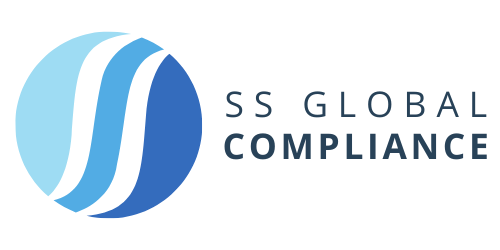ISO (International Organization for Standardization) – Introduction
ISO (International Organization for Standardization) Certification is an internationally recognized standard that demonstrates the quality, safety, efficiency, and reliability of an organization’s products, services, or management systems. It builds trust among customers, stakeholders, and regulators while enhancing operational performance.
With a variety of standards catering to different industries and sectors, ISO Certification helps businesses meet regulatory requirements, improve processes, and achieve global competitiveness.
What is ISO Certification?
ISO Certification is an endorsement that a company’s management systems, processes, services, or products conform to internationally accepted standards. These standards are developed by the International Organization for Standardization (ISO) to ensure consistency, quality, and safety.
Common ISO Certifications:
- ISO 9001: Quality Management System
- ISO 14001: Environmental Management System
- ISO 27001: Information Security Management System
- ISO 45001: Occupational Health and Safety Management System
- ISO 22000: Food Safety Management System
- ISO 50001: Energy Management System
Who Needs ISO Certification?
ISO Certification is essential for:
- Manufacturing Companies: To ensure consistent quality and meet industry standards.
- Service Providers: To build customer confidence in service reliability and safety.
- Exporters: To meet international trade requirements and market standards.
- IT Companies: For secure information management and compliance with global practices.
- Food Businesses: To adhere to food safety standards and gain consumer trust.
Why is ISO Certification Important?
- Improves Efficiency: Streamlines business processes, reducing wastage and increasing productivity.
- Enhances Customer Trust: Demonstrates a commitment to quality, safety, and sustainability.
- Global Recognition: Facilitates access to international markets by meeting global standards.
- Regulatory Compliance: Ensures adherence to legal and regulatory requirements.
- Risk Management: Helps identify and mitigate risks within business processes.
- Employee Satisfaction: Creates a structured work environment, boosting employee morale and engagement.
Process of ISO Certification
- Identify Applicable ISO Standard
- Determine the ISO standard that applies to your business operations or industry.
- Gap Analysis
- Assess current processes against the ISO standard requirements and identify areas for improvement.
- Documentation
- Prepare policies, procedures, and documents aligned with the ISO standard.
- Implementation
- Train employees and implement the necessary changes to comply with ISO standards.
- Internal Audit
- Conduct an internal audit to ensure compliance and readiness for certification.
- Apply for Certification
- Submit an application to an accredited certification body for evaluation.
- External Audit
- The certification body conducts a detailed audit to verify compliance with the standard.
- Certification Issuance
- Upon successful audit, the organization is awarded ISO Certification.
Required Documents for ISO Certification
- Company Profile
- Business name, address, and registration details.
- Scope of Certification
- Description of processes or products to be certified.
- Quality Manual
- Comprehensive documentation of quality management policies and procedures.
- Process Documents
- Records of processes, workflows, and operational standards.
- Audit Records
- Internal audit reports and corrective actions.
- Employee Records
- Training and competency records relevant to the ISO standard.
Timeline and Renewal
- Timeline for Certification: The ISO certification process typically takes 4-8 weeks, depending on the organization’s size, complexity, and preparedness.
- Validity and Renewal: ISO Certification is valid for 3 years, subject to annual surveillance audits. Organizations must undergo a re-certification audit to renew their certification.
Benefits of ISO Certification
- Market Edge: Differentiates your business in competitive markets.
- Customer Satisfaction: Improves service or product quality, leading to higher customer loyalty.
- Operational Efficiency: Optimizes resources and reduces operational costs.
- Legal Compliance: Demonstrates adherence to national and international laws.
- Global Trade Opportunities: Facilitates entry into international markets.
How We Help with Your ISO Certification
We provide end-to-end assistance to simplify the ISO Certification process:
- Gap Analysis
- Assess your organization’s current processes and identify gaps.
- Documentation Support
- Prepare policies, manuals, and records needed for certification.
- Employee Training
- Train your workforce to meet ISO standard requirements.
- Audit Assistance
- Support during internal and external audits to ensure smooth certification.
- Post-Certification Support
- Guidance for maintaining compliance and preparing for renewal audits.
Contact Us Today!
Achieve ISO Certification with ease and gain the trust of your customers and stakeholders. Let our experts guide you through every step of the certification process. Get in touch for a free consultation!
